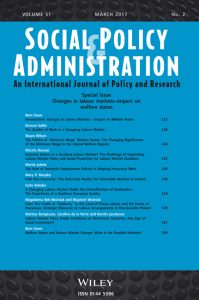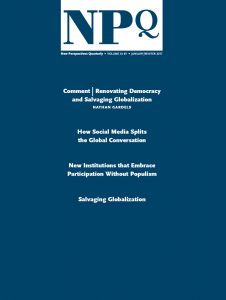Workplace innovation: a human-centric point of view
There is no consensus about the meaning of workplace innovation (WPI) (Oeij, 2024; Oeij & Dhondt, 2024). None is there agreement on whether WPI should be seen as a cause or an effect or a mediating variable. This leaves a void in understanding WPI both scientifically and practically. We regard workplace innovation as a practice to improve how an organisation performs while maintaining or creating a good quality of work for its employees. WPI has, therefore, a causal or mediating...









1728-4457/asset/PopulationCouncilLogo.jpg?v=1&s=03074651676b98d6b9d0ef1234bd48fe7ff937c3)